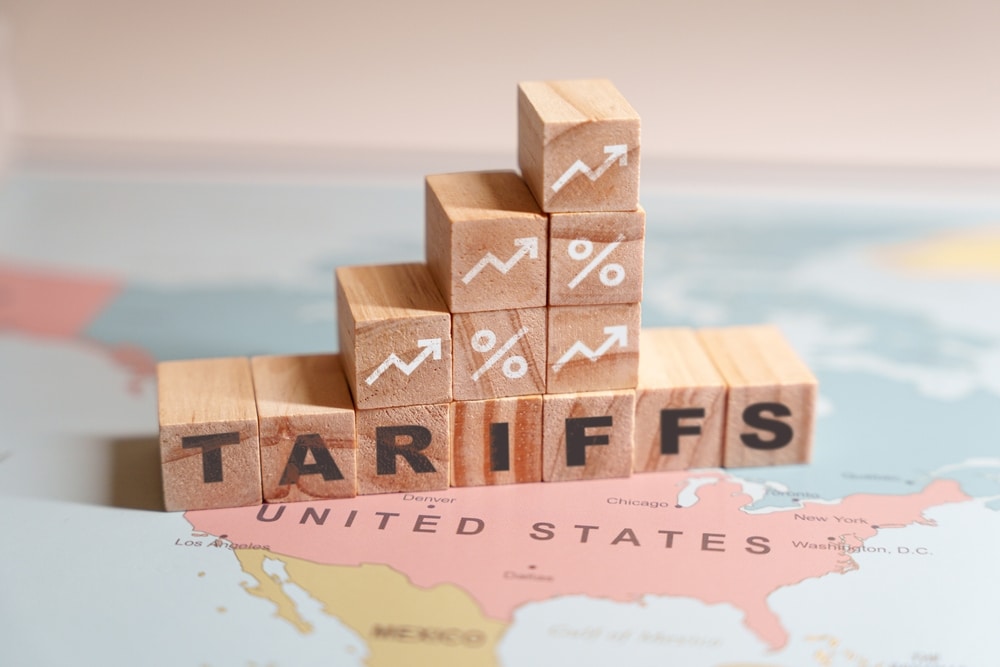are imported). “If you’re expecting a baby or have small children, it makes sense to buy those items sooner rather than later to avoid higher prices,” Huang advises.
As they often say, when you’re a parent, there’s never a dull moment. You’re constantly navigating a whirlwind of needs and wants. And right now, with prices rising due to tariffs and supply chain pressures, that task feels even more daunting. It’s completely normal to feel a little overwhelmed and anxious when thinking about those extra expenses creeping up. Navigating family budgets can already be stressful, and the constant news about inflation and tariffs adds yet another layer of anxiety.
But before you dive headfirst into panic-buying all the snacks at Costco or bulk-ordering diapers online, let’s take a step back and approach this with some calm and strategy. Experts across various fields, including supply chain specialists and financial planners, suggest that with some foresight and careful planning, you can weather these economic storms without breaking the bank.
Understanding Tariffs and Their Impact
First up: it’s important to acknowledge your worries—because they are valid. Tariffs are not just abstract economic policies—they have real, tangible effects on our everyday lives. They increase costs on a variety of goods that families rely on, from clothing and toys to food products. While the government may present them as some kind of foreign tax, the reality is that these costs are very much woven into the prices we pay at retail stores. As U.S. importers feel the pinch from these extra costs, they often pass those hikes right along to consumers.
Recent forecasts suggest that these tariffs could add anywhere from $4,000 to $8,000 to the average American family’s expenses this year, which can feel like an additional tax on top of your existing financial responsibilities. It’s a disheartening thought, especially when you’re juggling bills, childcare, and trying to put a little extra into savings.
While some negotiations may potentially lead to a rollback of certain tariffs, it’s wise to prepare for the worst. Experts warn of potential inflation, an economic slowdown, and other ramifications that can affect job stability. The key takeaway: being proactive in your shopping habits now can set you up for success down the line, and knowing what to buy (and not buy) can prevent you from incurring unnecessary costs.
Smart Shopping Strategies
Instead of getting caught up in frantic buying, consider adopting a strategy that experts call “precision shopping.” This method involves taking a measured approach to purchasing by focusing on seasonal needs, taking advantage of sales, and utilizing discounts. Think ahead and map out your family’s requirements to make targeted purchases that can save you money.
What to Buy Now
1. Kids’ Clothing & Shoes: Children grow in the blink of an eye, and with many clothing items manufactured overseas, it’s smart to get ahead of the curve. Look for sales now, especially on durable brands to avoid a last-minute shopping spree where you end up paying premium prices. Consider shopping at budget-friendly stores like Target or even thrift shops for great deals.
2. Toys and Gifts: While it may feel too early to think about birthday parties or holiday celebrations, getting ahead of the game with toy purchases could help you sidestep impending price increases. With a significant percentage of toys being produced overseas, starting early is a wise decision. The earlier you buy, the less likely you’ll be caught off-guard when prices surge closer to celebrations.
3. Baby Gear: If you’re expecting a little one, time to get moving on those essential purchases like strollers, car seats, and monitors. These items often have many components sourced from different countries, making them susceptible to price hikes as tariffs take effect. By snagging them now, you could save a pretty penny.
Take a moment to breathe. We’ve all felt the sense of dread that comes with worrying about what the future holds. These are unsettling times for families, and budgeting amidst rising costs can often feel like trying to hit a moving target. However, with a little planning and intention, you can not only navigate these challenges but also come out on the other side still standing proud as a parent. Remember, it’s about being prepared, not alarmed. After all, every little step you take now can create a ripple effect of financial comfort down the road.According to a report from the *New York Times*, an overwhelming portion of everyday electronics — think iPhones or that sleek new television — are manufactured overseas, especially in countries like China, South Korea, and Taiwan. These regions are also at the center of the recent tariff discussions ignited by the Trump administration.
Electronics for School or Work
If you’re a working parent or a student juggling online classes, you know how vital electronics have become. The good news is, even as tariff-induced prices fluctuate, there are still ways to snag deals without breaking the bank. “Be on the lookout for sales on refurbished models from trusted retailers like Best Buy or Amazon Renewed,” recommends Carrillo. These options often provide excellent value for families needing reliable tech without the hefty price tag. Investing in refurbished electronics not only saves you money but also makes a more environmentally friendly choice by extending the life of these devices.
Small Appliances
When it comes to household appliances like blenders, air fryers, or vacuums, many depend on imported components. Carls suggests taking advantage of sale events like Memorial Day or Amazon Prime Day to get the best deals. Interestingly, notable appliances manufactured primarily in China include 96% of charcoal grills, 71% of hair dryers, and 23% of washers. Shopping during these prime sale windows can help you stock up on the essentials without feeling the pinch of rising prices.
Health & Beauty Essentials
“Don’t overlook the essential health and beauty products,” advises Carrillo. If you’re on medication, it’s worth discussing with your healthcare provider about securing a three-month supply. This strategy can provide peace of mind, especially for those managing chronic conditions. Pharmacies like Walgreens or CVS frequently offer savings programs that can help ease the cost burden. Moreover, it could be a smart move to stock up on over-the-counter medicines or first-aid supplies.
In the world of beauty, you can find budget-friendly alternatives from makeup brands like e.l.f. Cosmetics and Maybelline. But, because a good portion of beauty tools are produced in China — including 91% of combs, 71% of hair dryers, and 82% of makeup brushes — it may make sense to gather your favorite tools now while they’re still affordable.
Non-Perishables in Bulk
With grocery prices on the rise, many parents are rightfully concerned about their food budget. “Being proactive about food purchases can really pay off,” Carrillo points out. Buying staple items in bulk, such as rice, beans, and canned veggies, is a fantastic way to stretch your dollar. These items are not only economical but also have long shelf lives. Consider partnering with friends or family for bulk purchases at local farmers’ markets, where you can find fresh, affordable produce.
If you’re up for a little work, canning or freezing seasonal fruits and vegetables can help you get through leaner months. It’s also worth checking what foods are being imported from China that you might not even realize are affected. Common items like garlic, apple juice concentrate, and certain frozen vegetables often come from abroad. Understanding your food sources can empower you to make more informed choices while shopping.
Products Parents May Want to Monitor
While kids might not be directly affected, there are plenty of items parents need to keep an eye on. Cars, for instance, have been hit hard by tariffs, with estimates suggesting a potential increase in costs ranging from $2,500 to $20,000 for certain models. Other everyday items, like wine, furniture, coffee, and chocolate, could also see price hikes due to their import reliance.
How to Shop Smarter — Even as Prices Rise
Carrillo and Huang both warn against the impulse to overstock perishables. Panic buying can lead to waste and budget strain. “Consider supplementing your usual shopping with thriftier options,” Carrillo advises. Check out secondhand stores or community swap groups for gently used books and clothing at a fraction of the original price.
A savvy shopping tip from Huang: look for brands or platforms that offer direct-from-manufacturer purchases. This approach often helps sidestep various pricing markups and mitigates tariff-related costs. Transparency in sourcing will guide you through the winding road of rising prices.
Additionally, don’t forget to utilize price trackers like CamelCamelCamel, which can help ensure you’re truly getting a solid deal.
Bottom Line: Stay Grounded, Stay Smart
Let’s be real. Tariffs and rising prices can feel daunting and even a bit scary. But experts assure us that with a little foresight and planning, these financial hurdles can be navigated.
“I’ve seen firsthand how economic changes impact hardworking families, especially those already on a tight budget,” Carrillo shares. “It’s a complicated issue, but preparation and resourcefulness can make a significant difference.”
Remember, it’s not about stockpiling — it’s about staying one step ahead. With careful planning and smart shopping, you can protect your budget without sacrificing peace of mind.
Image Source: Rokas Tenys / Shutterstock



































